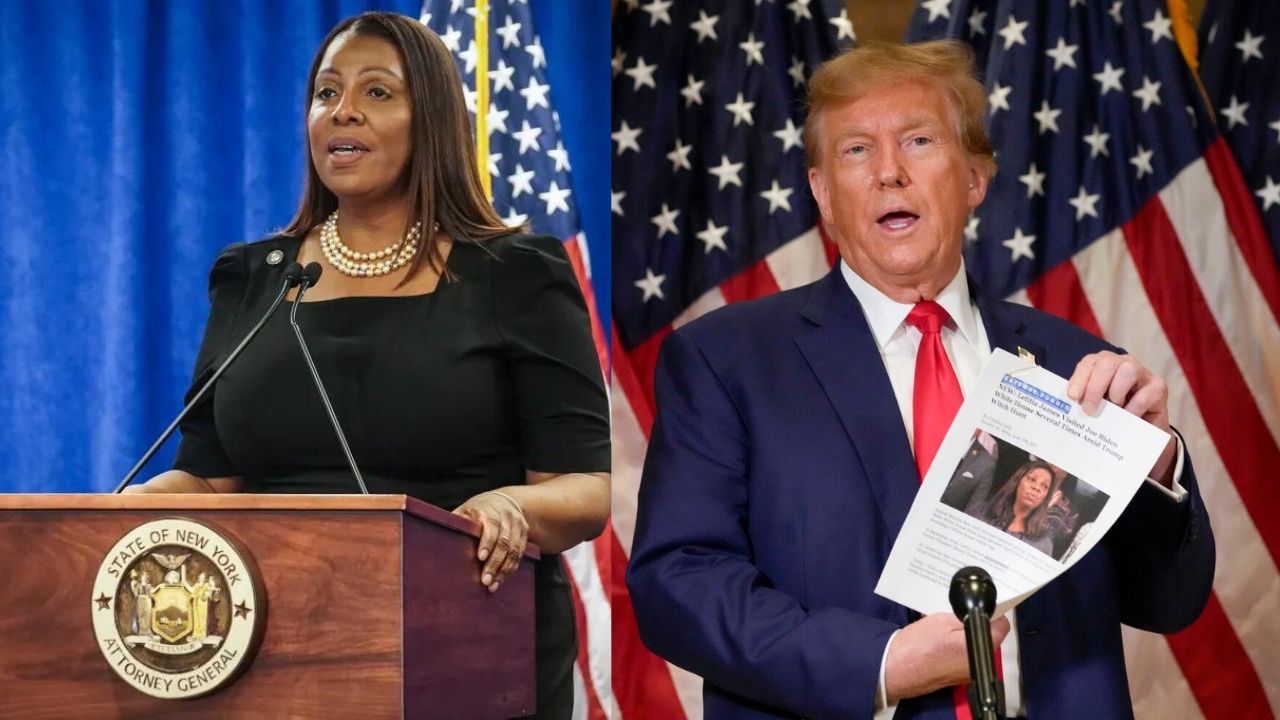The New York Attorney General’s office has filed legal judgments in Westchester County, signaling the state’s initial steps toward potentially seizing Donald Trump’s golf course and private estate, known as Seven Springs, located north of Manhattan.
These judgments were submitted to the clerk’s office in Westchester County on March 6, shortly after Judge Arthur Engoron finalized his ruling of $464 million against Trump, his sons Donald Trump Jr. and Eric Trump, and the Trump Organization.
This ruling against Trump, coupled with his challenges in obtaining a bond while appealing the decision, directly impacts his public perception as a billionaire. It also adds to his financial strain as he seeks to raise funds for his legal expenses and potential third presidential campaign.
Initiating a judgment marks the initial stage in a creditor’s efforts to reclaim property. Subsequent actions, such as placing liens on assets, initiating foreclosure proceedings, or pursuing other legal avenues, may follow if the intention is to seize the asset.
Currently, the judgment has been entered in New York City, where Trump’s properties, including Trump Tower, his penthouse at Trump Tower, 40 Wall Street, his hotel adjacent to Central Park, and numerous apartment buildings, are situated.
However, judgments have not yet been entered in Florida counties such as Miami or Palm Beach, where Trump’s Mar-a-Lago property and the Trump National Doral Golf Club and resort are located, nor in Cook County, Illinois, where Trump’s hotel in Chicago is situated.
Trump now has a four-day window to satisfy the judgment or seek approval from an appeals court to post a reduced amount or postpone payment until after the appeal process.
In a recent post on Truth Social, Trump emphasized the significant expense involved in posting the required bond, stating that it is not feasible for bonding companies to accommodate such a substantial amount.
A New York appeals court announced on Friday that the attorney general’s office will have the opportunity to submit a written response to Trump’s assertions. However, the process of asset seizure is anticipated to be neither swift nor straightforward. Trump has structured his business by establishing limited liability companies (LLCs) for nearly every property or asset, totaling over 300, all ultimately controlled by his trust.
“These entities are intricately organized, and Trump is not listed as the direct owner on paper. Consequently, a judgment against him would not immediately apply to certain properties. Untangling this complexity will be neither simple nor expeditious,” explained Nikos Passas, a professor of criminology and criminal justice at Northeastern University.
“In the interim, the attorney general could pursue bank levies and target bank assets. Property liens are another viable option. There are various strategies available to her in her pursuit of collection,” Passas added.
“This situation severely undermines Trump’s brand, which he relies on for generating revenue not only in the United States but worldwide,” Passas remarked. “Ultimately, this could signal the demise of Trump’s business in New York and beyond, potentially leading to complications in other jurisdictions as well.”

